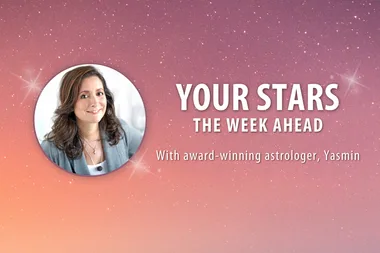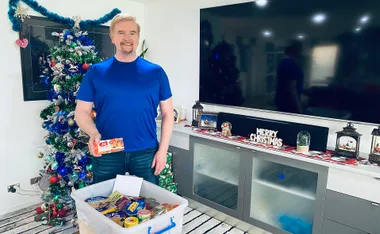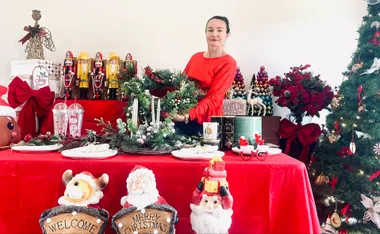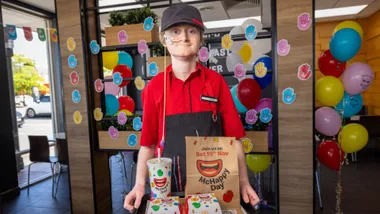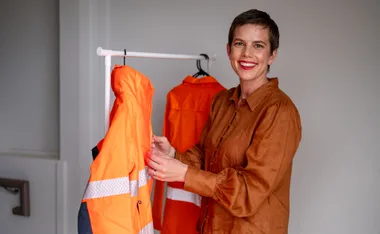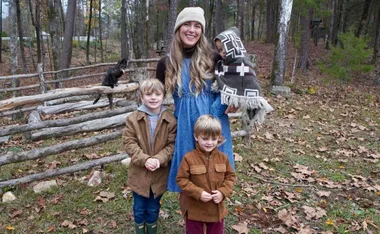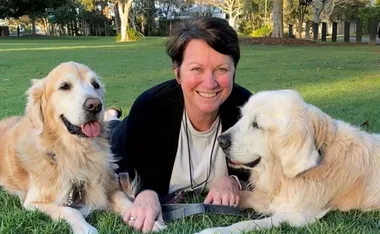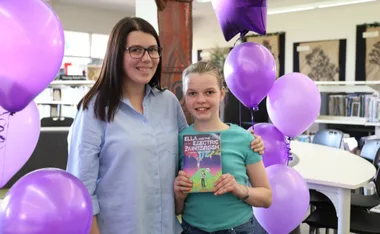My daughter, Mary, was home sick from school one day. She’d been living with anorexia since she was 12 and we let her stay home sometimes as she became exhausted easily. She was in her room when my husband rang and asked me to check on her.
I cracked open her door and peered into her room but she was gone. There had been an incident in town where a young girl had taken her life at a local bridge.
That young girl was my 15-year-old daughter. My beautiful, vibrant, Mary.
Mary had been living with this eating disorder for three years, but I never imagined it would end in a phone call that changed my life forever.
Mary was a normal kid of a normal weight when she suffered a nasty abscess in her tooth. We travelled from our home in Albury to Melbourne for a root canal but her health continued to decline.
She became very unwell with virus-like symptoms. She had a mild fever and her entire body was covered in a rash. Her paediatrician immediately diagnosed parvovirus. Although she had physical symptoms, her doctor once asked me if I thought this sickness was in Mary’s head.
I replied: “you’re the doctor.”
During this week of tooth infection, it’s as though an eating switch was turned off in Mary and her desire to eat simply vanished.
She spent weeks undergoing blood tests and we had ongoing trouble feeding her. We were finally discharged and went home.
When your child is sick, you rug them up on the couch and wait until they ask you for food. You give them whatever they want.
Sometimes they don’t feel like eating and you can’t force them to. I had no idea that we were dealing with an eating disorder.
When Mary was clearly at her sickest, her paediatrician told her it was time to stop it and get back to school. He had no idea what he was dealing with and I don’t feel like he tried hard enough to understand. We needed someone specialised and trained in this field.
I don’t know if anyone would truly ever understand why this was happening but maybe if Mary received adequate treatment in those crucial early stages, this story would have ended differently.
Within eight weeks, Mary had lost about 8kgs and she was dangerously thin at 27kgs. We took her back to hospital in Melbourne. Mary was fed seven meals a day through a nasogastric tube and it was akin to torture. She didn’t fight it, she didn’t cry, she didn’t anything.
Mary was compliant and went through the motions. My beautiful daughter’s spark wasn’t glowing any longer.
I tried talking to her, but she gave nothing away. I would have begged if I thought it would make a difference but pleading with an anorexic to stop is like begging someone with Alzheimer’s to remember. So I just watched her and loved her and tried to keep it all together.
We were discharged from the hospital after eight weeks and, of course, Mary had gained weight – but she was far from “better”.
Mary, Henry and Jack
Every week for a year, her big brothers, Jack, then 20, and Henry, then 16, Mary and I would drive 330km from Albury to Melbourne to go to Oak House for “treatment”. Their form of treatment wasn’t working for us. It was agonising to go through but we couldn’t stop as it was part of our ongoing treatment ordered by the hospital.
I was communicating with other psychiatrists and therapists but no one could really get to the bottom of what was happening with our Mary. It was mysterious and complex. And so incredibly heartbreaking.
Mary returned to school and one of our family would go three and sometimes four times a day to feed her for the next three years. I think this probably alienated her from her friends but if we didn’t go, she just wouldn’t eat.
If we physically handed Mary food, she would eat it with no argument, she would ask for changes in our evening meal, she would eat what was given to her but without us, it’s like she just didn’t think about food. Often people with anorexia will fight food, but Mary didn’t. She was just ambivalent.
This is not a normal case of an eating disorder, but there is no real normal case. It touches different people differently, which is why specialist care is so important.
I feel that something happened with the abscess. I feel that the infection may have affected her brain and changed something in there, but I will never know why this happened. I can only try to live with it now that it has.
Mary was not noticeably different in the days leading up to taking her own life. She rode her horse and played water polo. Everything seemed fairly normal. In hindsight, there were tiny signs that she was tidying away her life in preparation.
She closed down her Facebook page sagely stating it was a waste of time, she tidied out her room which she did every year or so anyway, but I suppose this time was different.
The pain I feel at her loss is indescribable. There is a hole in my family where Mary used to be, and that hole will never diminish.
The days after her death were like a nightmare. We found some poetry that Mary wrote and the way she articulated herself in these words was unlike any way she could communicate in life. These poems gave no real answers, but they allowed us to see what was going on underneath Mary’s façade.
Eating disorders are a very serious mental illness and to anyone caring for someone with an eating disorder I beg you to realise it may be more dire than it appears on the surface. Timing is crucial and getting adequate and personalised help as early as possible is paramount to survival of this terrible problem.
Eating disorders have the highest mortality rate of any mental illness and not enough people know this. No one told me suicide was a possibility, no one.
Suicide is a very complex issue and a deeply complicated grief. It is incredibly awful for the people left behind. I began the Albury Wodonga Winter Solstice with Survivors of Suicide and Friends to help shine a light on the darkest night of the year.
Once a year we join together with inspirational speakers in the field and together we continue our journey of healing and hope in the wake of such tragedy.
If you need support please contact the National Eating Disorders Supportline on 1800 33 4673 (1800 ED HOPE) at the Butterfly Foundation

